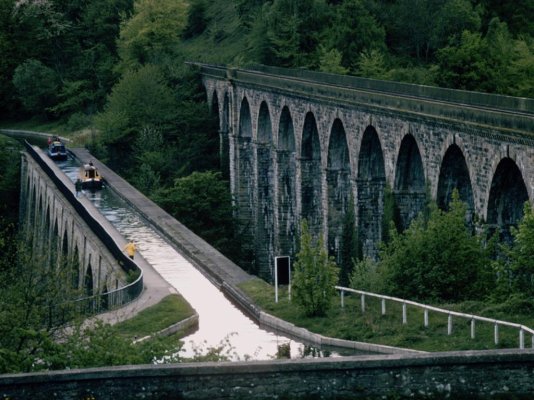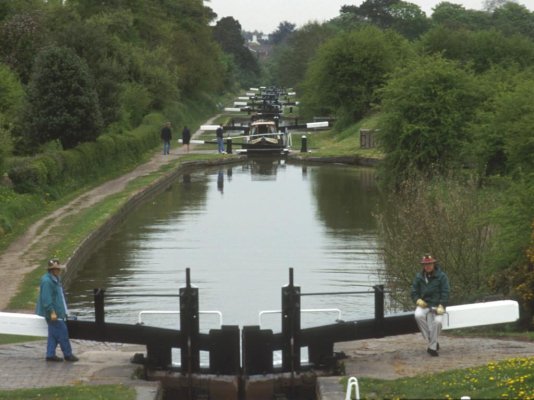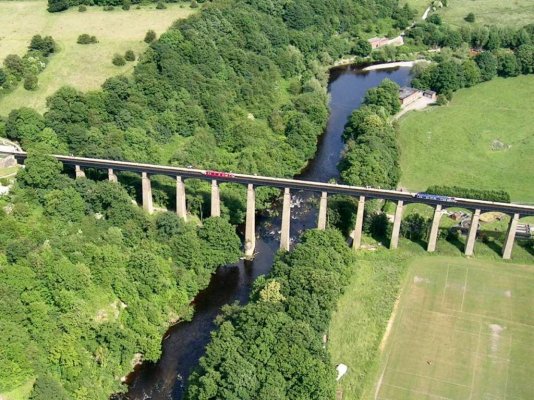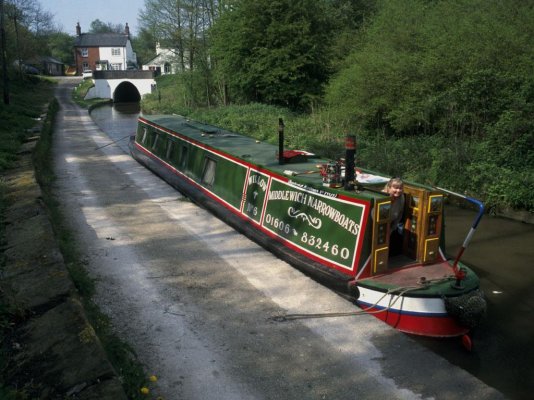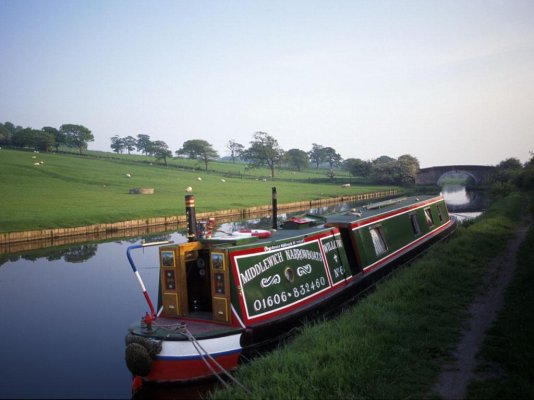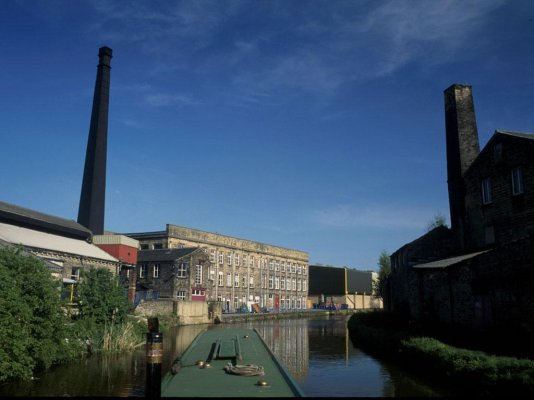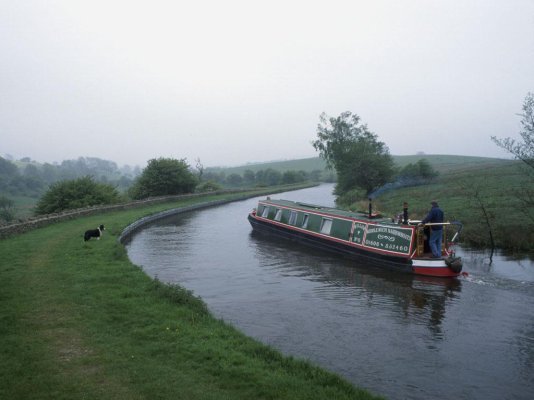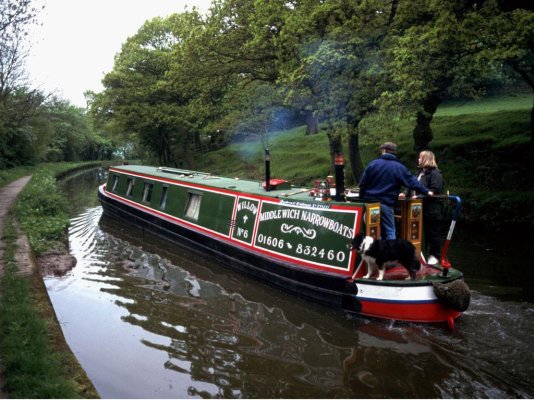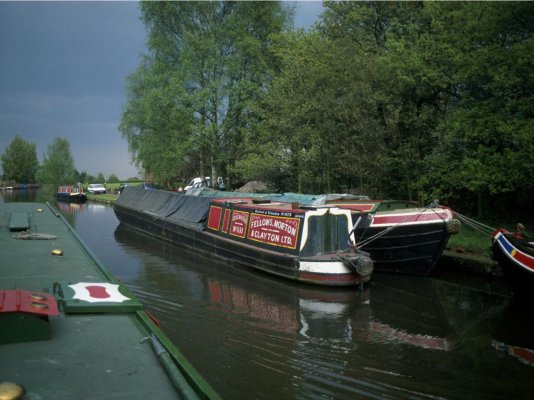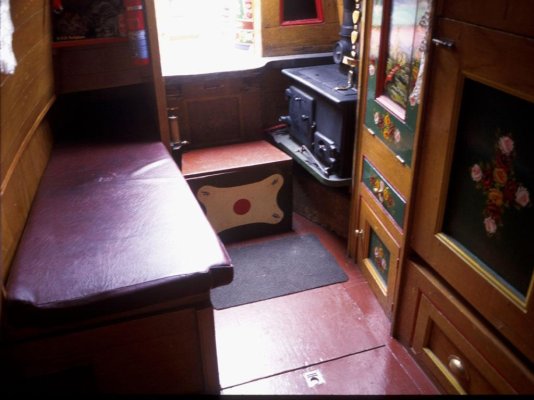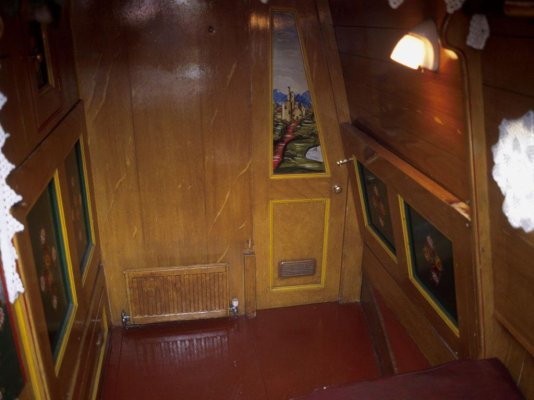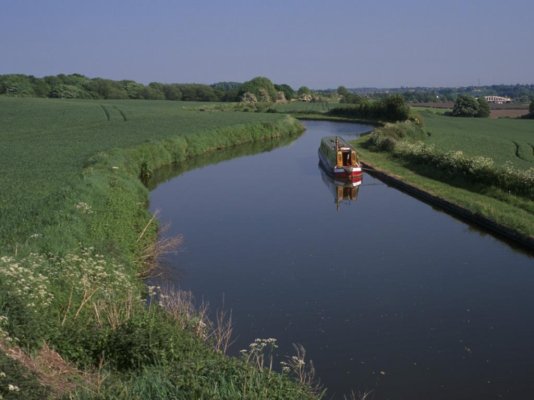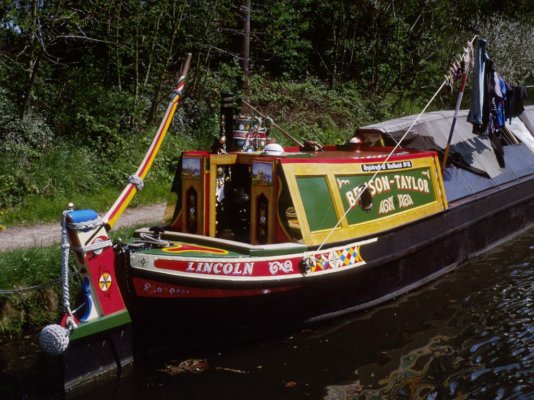Not trawlers per se, but there are similarities.* Slow boats, economical to run,*neat scenery, comfortable on-board accomodations.* I thought I'd post these shots*to encourage anyone who hasn't had a chance to to do this to try it out sometime.
My wife and I have been doing this in England and Wales*since 1990, sometimes just the two of us, sometimes with friends.* If you like boating and want to visit the UK (or France, Belgium, Germany, etc.) this is a great way to combine both interests.* And, like trawlering, it's a great way to meet interesting people you otherwise might not have a chance to meet.
The aerial shot (which I did not take) is of the famous Pontcysyllte aqueduct that carries the Llangollen Canal over the river Dee in Wales.* The aqueduct was completed in 1805 and is the longest and highest aqueduct in England.* It consists of a cast iron trough on top of stone masonry, and is still in use today.* Going across it is a little like flying, as on the non-towpath side all that's between you and the air is the couple of inches of*200-year-old*cast iron.
For anyone interested, the boat in most of these photos is 60 feet long, 6 feet, ten inches wide, draws about 2-1/2 feet, is all steel, has 6 feet 6 inches of headroom in the center,*and is powered by a large Lister 3-cylinder, air-cooled diesel.
-- Edited by Marin at 16:54, 2007-10-30
My wife and I have been doing this in England and Wales*since 1990, sometimes just the two of us, sometimes with friends.* If you like boating and want to visit the UK (or France, Belgium, Germany, etc.) this is a great way to combine both interests.* And, like trawlering, it's a great way to meet interesting people you otherwise might not have a chance to meet.
The aerial shot (which I did not take) is of the famous Pontcysyllte aqueduct that carries the Llangollen Canal over the river Dee in Wales.* The aqueduct was completed in 1805 and is the longest and highest aqueduct in England.* It consists of a cast iron trough on top of stone masonry, and is still in use today.* Going across it is a little like flying, as on the non-towpath side all that's between you and the air is the couple of inches of*200-year-old*cast iron.
For anyone interested, the boat in most of these photos is 60 feet long, 6 feet, ten inches wide, draws about 2-1/2 feet, is all steel, has 6 feet 6 inches of headroom in the center,*and is powered by a large Lister 3-cylinder, air-cooled diesel.
-- Edited by Marin at 16:54, 2007-10-30

